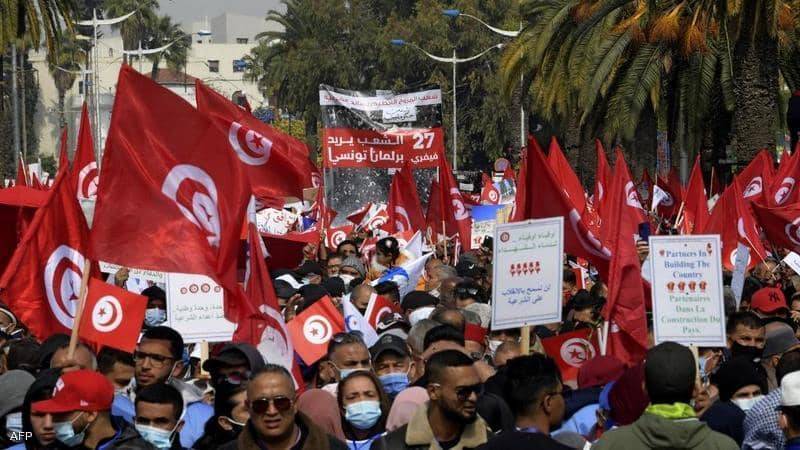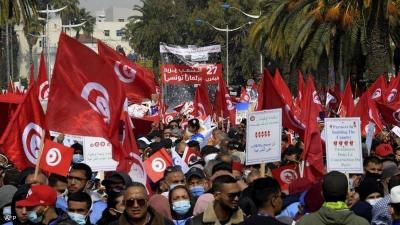Under the title "With Delayed Political Solutions, Is Tunisia Drifting Towards Lebanon's Fate?", Bloomberg Asharq reported that the Tunisian president's control over power has pushed the country's fragile democracy to the brink, posing a threat to the economy at present. More than three weeks after his dismissal of the prime minister and the suspension of parliament, and pledging to save the nation amid escalating anti-government protests, Kais Saied has not revealed a return to elected governance. The lack of progress in Tunisia in this regard threatens to delay a much-anticipated agreement with the International Monetary Fund and plans to issue debts abroad in October, raising concerns among some analysts about a tumultuous default similar to Lebanon.
"Lebanon, where political paralysis has led to economic collapse, represents a frightening example of how bad conditions can become when there are equal but irreconcilable forces on the same stage," according to Hussein Malik, head of equity research at Tellimer Research, which views Tunisia's default risk as very high.
#### Deteriorating Economic Indicators
The collapse of a country that serves as a link between Africa, Europe, and the Middle East would have repercussions beyond Tunisia and might send another wave of disaffected youth across the Mediterranean. Sarah Yerkes, a senior fellow at the Carnegie Endowment for International Peace, stated that after a decade since the Tunisian uprising that ended authoritarian rule, there seems to be a threat to "the haven of free expression for people across the Arab world."
Tunisia's external debt seems set to reach around 100% of GDP next year. Inflation has reached its highest level since the fall of 2019, and unemployment is rising at its fastest rate since 2010, when discontent exploded against dictator Zine El Abidine Ben Ali. Since then, frequent government changes, sporadic terrorist attacks against the key tourism sector, and the COVID-19 pandemic have contributed to the sense of distress. The economy contracted by 8.6% last year.
#### Mixed Reactions
The former law professor, Kais Saied, 63, won the 2019 elections amid a wave of dissatisfaction with the bickering and perceived partisanship of post-uprising politicians. Moderate Islamists in parliament condemned his July move made amid protests over the response to the COVID outbreak in Tunisia, describing it as a coup. However, elsewhere it was met with popular support and a strong labor union from the General Union of Tunisian Workers, which has long opposed the subsidies and wage cuts that the IMF suggested were necessary for economic reform. They are currently demanding a roadmap for a return to democracy.
#### Risks of Debt Default
James Swanston, an economist for the Middle East and North Africa at Capital Economics, believes that although there are increasing risks of default if public finances are not strengthened, Tunisia is likely to have to restructure its debts. He stated that cost-cutting during the pandemic may be politically untenable and "the new government is likely to have to make concessions to secure power, and austerity measures will be implemented." For its part, Bank of America stated that without an IMF program or relevant bilateral and multilateral support, Tunisia's international reserves "could be significantly depleted by the end of 2022." Net foreign exchange reserves amounted to about $7.4 billion at the end of July, enough for 219 days of imports, slightly down from the previous year.
#### A Very Dark Place
A former official in the government of Hisham Mechichi, the prime minister who was dismissed on July 25, described the economic situation as serious and unpredictable. Saied hinted at talks with "brother" countries. The former official noted that seeking funding from Saudi Arabia and the UAE is the only potential solution, as an IMF agreement will take at least another six months. Tarek Megerisi, a senior policy fellow at the European Council on Foreign Relations, remarked, "Tunisia has months to show the world that it cares about business and is moving toward something constructive, or risks entering a very dark place."




